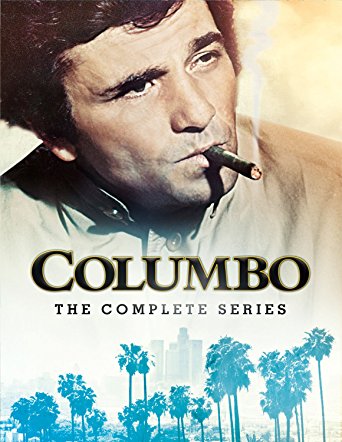
you're looking
for is right here:
Save money!
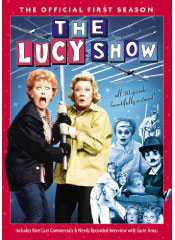
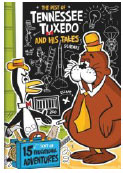

 |
Everything
you're looking for is right here: Save money! |
 |
 |
 |
||
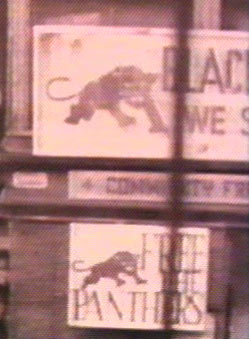
A short
history of Black Following the second World War, young African-American men in Los Angeles formed clubs in reaction to established gangs of white youths (like the vicious 'Spook Hunters') who subscribed to the KKK philosophy - violently reacting to any black person that stepped outside of their rigidly designated neighborhood. (Since 1922, housing laws had prevented Blacks from buying property outside a specific zone, areas west of Main Street were off limits to blacks altogether.) As the African-American community spread, Whites fled for the San Fernando Valley in the late-1950s, decimating the ranks of the white gangs, leaving South and Central LA a predominantly Black community. Black gangs called The Gladiators, the Businessmen and the Slausons sprang up around the housing projects built for the war. By the mid-sixties, Black gang activity consisted mostly of car clubs and community events; East side/West side rivalries led to most of the violence, tame as it was by today's standard - knives, chains, baseball bats, those kind of battles. After the Watts rebellion/riot in the summer of 1965, club memberships jumped as community leaders turned their energies to social activism. Their goal was to put aside old differences, change the circumstances that led to the rebellion, confront police brutality and address economic issues on a local level. Street gang activity, such as it was, virtually disappeared, replaced by neighborhood political groups, food banks and day care facilities. Groups with names like Sons of Watts, US (United Slaves) Organization (headed by Ron Karenga, aka Maulana Karenga, who created the holiday Kwanzaa) and the LA chapter of the Black Panther Party for Self-defense sprang up to provide community leadership between the years 1965 - 1967. The Black Cat Bones (discussed in the article at right) was one of many groups that coalesced around this time. These were politically active, articulate individuals working for a cause they felt deeply about. Their militant stance was no match for an all-out assault from the LAPD and the FBI's relentlessly successful Counterintelligence operation begun in 1967. (Cointelpro was initially launched in 1956 against the American Communist Party.) By 1969, a year after this Joe Pyne episode aired and six years after Dr. Martin Luther King's "I Have a Dream Speech," virtually the entire LA leadership of the Black Panther Party and all other Black activist groups were brutally murdered, imprisoned (many on false charges) or co-opted by the FBI. And Dr. King was dead as well. This power vacuum led to the formation of gangs as we know them today. Political activists like L. C. Wheeler were supplanted by younger, less educated kids who formed groups like the 'Avenue Cribs.' Political activism was rapidly replaced by behavior that was rooted in an inner-city adolescent's need for respect, approval, group identification, protection and other practical concerns. While this was going on, former LA black activists sentenced to prison spread their Muslim beliefs (in honor of Malcolm X) to a hungry audience - and that's why so many incarcerated black youths turn to the Muslim religion today. Larger and smaller gangs joined with the 'Cribs' in 1972 to form the thriving organization we know today as the 'LA Crips.' Perhaps you've heard of them, they are a vast concern with branches in most major cities.
That jacket became the sign of a Crip member by the early-seventies, with most of the gang's early crimes centering around the means to acquire that leather coat. By 1979, gang membership had doubled - but the founder of the Crips himself lay dead at the age of 26. Street gang membership exploded in the 1980s and 1990s, fueled by cheap cocaine in need of distribution that was being dumped on the city. Currently there are nearly 300 Black gangs in LA County, with over 150,000 members. It's important to keep in mind that not all gang members are involved in crime, nor are all gangs criminal organizations. Click
here to
Please consider a donation
so we can continue this work!
Amazon Prime - unlimited streaming PR4 & PR5 Pages for Advertising
|
PART TWO - by Billy Ingram
A careful examination of one episode of The Joe Pyne Show from 1968 offers us a peephole into the past; an opportunity to look at how race was discussed on TV in the mid-sixties, and a glimpse into to the very origins of one of the most infamous organizations of all time (see left). Joe Pyne wasn't exactly a champion for civil rights. He was suspended for a week when he pulled a gun out in front of a Black guest during the Watts riots period. In one of Pyne's last shows, taped shortly after the murder of Dr. Martin Luther King in 1968, two guests debated distinctly opposite political views.
This organization was promoting the concept of "the responsible Negro." They were determined to see to it that Dr. Martin Luther King, Huey Newton, Ralph Abernathy, Malcolm X and other prominent civil rights leaders of the era were not glorified.
The guests entered into a spirited discourse about race and the role of Black leaders in America, post-Martin Luther King.
Joe Pyne did his usual provocative probing on this program, insisting that Rev. Yearling identify himself with an established label - Black American, Afro-American, Negro, whatever. African-American (or Afro-American) was considered a radical designation at the time.
Wheeler vehemently disagreed, "Make up your mind. Now, we can't solve it by integrating, we can't solve it by segregating, what are we gonna do? Die?"
One wonders why Pyne invited these two particular individuals to debate on his program, but it was just that kind of audacious broadcasting that Joe Pyne delivered to a hungry nation for three years. A chain smoker, Joe was diagnosed with lung cancer at the peak of his career. After broadcasting his highly-rated morning radio programs from his bed for a period, Joe finally gave up his shows in 1969. He was only 44 when he succumbed to lung cancer on March 23, 1970.
"I was a high school kid in Pasadena in the early 60s and was fascinated by Joe Pyne. I have one particular memory. An African-American called in one night, and, after some baiting, Pyne asked him how he wanted to be referred to. The fellow said 'Just call me 'Black Man...'' "Well, this was early 60s when African-Americans were still called 'Negroes.' "So Pyne went nuts, berating this guy for wanting to be called something so 'crude' instead of 'Negro.' "Sure enough, 12-24 months later African Americans widely adopted the reference to being 'Black.' And this poor guest Joe berated certainly got the last laugh - he had been on the cutting edge, way ahead of Pyne or anyone else in the white community." - Bob Daniels "I remember Joe Pyne's TV show from 1967 - 1969. I caught it on one of the UHF stations out of Boston, probably Channel 38. He was merciless to charlatans and sloppy thinkers (usually liberal). Two particular interchanges I remember: "1. A fortune-teller or swami of some kind, complete with turban, was a guest. Joe asked him a few questions about his 'mystic abilities,' and then lowered the boom. 'Didn't you tell my makeup man back stage not five minutes ago that this was all an act? That you put on this turban and told your story and they all went for it?' "The hapless swami protested, but Joe wouldn't let up. He ripped up the fellow's 'reputation' with a kind of grim relish, the look in his eyes something like you might imagine you'd see on the face of an army medic reaching into a wound to pull out a piece of shrapnel. Job completed, Joe told the fellow 'you make me sick' and invited him to 'take a hike.' "THIS WAS DYNAMITE STUFF-- NO ONE had ever seen or heard that style of interview before. "2. One show, I think, was on gluttons, drug users, or other persons who abused their health. A woman stepped up to the Beef Box and said to Joe "You're a hypocrite! How do you explain those cigarettes you're smoking, Mr. Pyne?" "While I don't recall Pyne's exact answer, I remember it was kind of lame-- and Joe acknowledged that in a rare insight into his personality and style: Almost apologetically, to the audience after the woman stepped down, he said, 'Well, I had to get out of that somehow' -- exposing the game for just a moment. "As a wounded war vet with a prosthetic leg, Pyne had unique license to rip up fools, parasites, and the self-indulgent. What an amazing original, at least two decades ahead of his time. I'll bet Rush Limbaugh used to be a listener, and was powerfully impressed." - Leon Malinofsky "Thanks for posting the interesting feature on Joe Pyne. "I was only 14 when he died, so I kind of came in on the 'tail end' of his outrageous career, but I grew up in southern California and I do remember his TV and radio shows. I remember late one night, I was listening to him on the radio (it might have been early morning--I had a paper route) and he had some black guy on there who kept referring to himself as a "slave," and referring to all black people as "slaves." "Naturally, Pyne wasn't going to sit still for that, and he ultimately challenged the guy with, "If you're a slave, I should be able to sell you!" This went back and forth until Pyne finally threw down the gauntlet and said, "Let's do this--let's go out on the sidewalk and I'll see if I can get anybody to make an offer on you!" "When they went to a commercial break, Pyne's out-tro line was, "This is Joe Pyne taking Ernie Smith out on the sidewalk to see what I can get for him!" "Outrageous. And soooo '60s." - Kelley Dupuis "As a teenager, I loved to watch The Joe Pyne Show on Channel 8 here in Tulsa for the weirdos he frequently had as guests. "Joe Pyne functioned as a corrosively skeptical Art Bell, bringing on out-and-out cranks, drawing them out and and poking fun at them in his deadpan way. I remember one guest with a shaved head (not so common in 1968) and wearing a ceremonial robe who would periodically retract his eyelids for a moment. I can't remember if his shtick was being a Messiah or an interstellar visitor. "Joe was such a put-down artist, it was a thrill to see him meet his match. David Susskind, who had his own controversial talk show, cheerfully batted away Pyne's barbs. F. Lee Bailey (well-known then as the attorney of Dr. Sam Shepard, the real life model for Dr. Richard Kimble on "The Fugitive") made Pyne look like a monkey, to my delight. "The audience members who stepped into the "Beef Box" were often as freaky as the guests. It seemed difficult to make any points against Pyne from this precarious perch, since Pyne usually wound up telling them to "take a hike". I must be getting old; I don't enjoy any of today's rabble-rousers as much as I did Joe Pyne." - Mike Ransom "I took a lot of ribbing because I had the same name but spelled differently. He was Joe Pyne and I am Joe Pine. But it sounded the same! To this day, people that remember him still ask me if I am related etc. "I remember writing him in 1973 telling him about the hassles I got from my friends and how it was his 'fault' hoping that maybe we could meet and/or get on his show. Unfortunately, whether he received my letter or not, died from cancer. "The one legacy that I received from him during the fall semester of my freshman year (1969) in college (much to my dismay) was that the dorm I was residing in (my friends and I still believe was the basis for the movie Animal House) was that the Dorm Mother had made a game of everyone figuring out everyone's name to get each dorm resident to know each other. Well, for the Joe Pyne aficionados, who are aware of the Beef Box on the show, the Dorm Mom gave as a clue to me, the French translation of beef box as a clue to me. "After that, my team mates on the football team called me Beef Box (although I earned the nick name of 'The Kodiak.' The name should explain itself). I did get to share the Beef Box moniker with a J.C. transfer who was much bigger than me and a J.C. transfer smaller than me. We respectively became Big Beefer, Beef Box/ Beefer, and Little Beefer. "On the whole, Howard Stern does not hold a candle to Joe Pyne, the original shock jock, who started it all." - Dr. C J Pine Hit Shows of the Seventies: Hitchhiker's Guide to the Galaxy / Gene Roddenberry in the 1970s / Star Trek Animated / Fall Previews of the 70s / Lance Link, Secret Chimp / Star Wars Holiday Special / Alias Smith and Jones / 1977 Year in Review / Top Ten 1970-76 / The Rockford Files / All in the Family / Sam Hall (Dark Shadows) Interview / Actor Ed Nelson / Death of Archie / Battlestar Galactica / Wonder Woman / Network Jingles / Class of '74 / Happy Days / Good Times / Mr. Bill / Dinah! / Maude / Doris Day Show / Pamelyn Ferdin Interview / The Bicentennial Minute / Jingles & Catch Phrases of the 1970s / Early Cable TV 1970s / TV commercials for Women / TV Moms / Bette Midler in the 1970s / Bonus 1970's Stuff: Biff Burger
|
 |
  |
  |
  |
  |
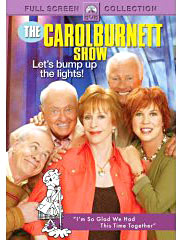 |
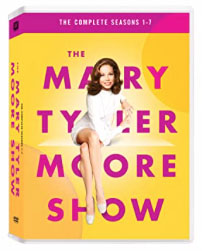 |
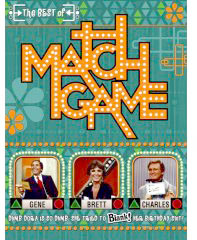 |
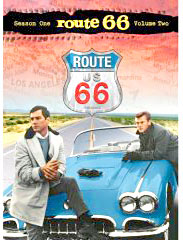 |
 |
||
|
||||||||||||||
| Everything
you're looking for is right here: Save money! |